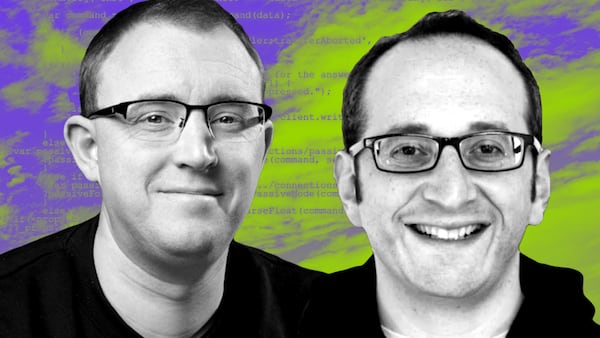- Humanity Protocol's newly launched token is down 61%.
- Users complain they were excluded from a token airdrop.
- The project's founder said many of the network's users may not be real.
Humanity Protocol, a rival to the Sam Altman-backed crypto identity project World, is in trouble.
The project’s newly launched token has plummeted by over 61% since its launch on Wednesday.
That comes as Terrance Kwok, Humanity Protocol’s founder, admitted that the vast majority of the project’s users may not be real people.
“In terms of Human IDs, there were nine million created, but there were actually quite a lot that were bots,” Kwok said in a leaked conversation with a pseudonymous content creator called Zun on Tuesday. “When you look at the number of people who were actually verified I think it’s approaching a million.”
If Kwok’s numbers are correct, it means up to 88% of the network’s users may not be real.
That’s an issue, as Humanity Protocol’s raison d’être is to prevent bots from cropping up on the network.
On the project’s website, it advertises that there are over six million so-called Human IDs on its network.
“Humanity Protocol is growing one human at a time,” the project’s website says under the six million figure.
In the leaked conversation, Kwok suggests the figure is misleading, and Human IDs aren’t so human after all.
In a statement, Kwok told DL News that not all Human IDs have completed biometric or social verification, and confirmed that just under one million were verifiably human.
The reason for the vast number of bots is Humanity Protocol’s airdrop. It planned to give out 1.2 billion tokens in an airdrop to verified users, its Discord community, and stakers for the AI-powered crypto project Kaito.
Token airdrops are a popular way for crypto projects to reward early users.
However, they are often targeted by so-called Sybil attackers, users who mass-create accounts using bots in an attempt to claim an airdrop multiple times.
Palm scans
Humanity Protocol uses biometrics, such as palm scans, to generate unique identities for its users, which are stored on its blockchain.
Users can create Human IDs by linking their crypto wallets and social accounts, but can only unlock exclusive rewards, such as airdrops, by verifying themselves with palm scans.
The idea is to verify users’ identities without creating a vulnerable centralised point of control, Kwok previously told DL News.
In January, the project raised $20 million from venture investors including Pantera Capital and Jump Crypto at a $1.1 billion valuation.
Pantera Capital and Jump Crypto did not immediately respond to requests for comment.
Humanity Protocol isn’t Kwok’s first venture.
In 2012, he founded Tink Labs, which in 2016 raised $200 million from investors, including Japan’s SoftBank, for a business that supplied smartphones to hotels.
By 2019, that business had collapsed, vaporising investor capital.
‘Be on our side’
When Humanity Protocol launched its token on Wednesday, many users complained that they had been unfairly excluded from the airdrop.
Others, such as Zun, said the small number of tokens they were set to receive wasn’t fair either.
In the same leaked conversation, Kwok told Zun that many of the Human IDs created using Zun’s referral link were flagged as bots, lowering his allocation of tokens.
Kwok also said he would increase Zun’s allocation of tokens and asked him to inform the Humanity Protocol community about the strategy to combat bots.
“Two things I will do: Number one, we’ll update the allocation; and number two, I want to see if you can help be on our side,” Kwok said.
Zun, who has a following of almost 29,000 followers on X, holds significant influence within the Humanity Protocol community.
Kwok said Humanity Protocol has engaged directly with several community members where its team identified discrepancies between the number of referrals they generated and the number of users who completed verification.
After the call, Zun said Humanity Protocol tripled his allocation of tokens. When the token launched, his allocation was worth around $1,050.
“At no point was Zun asked to delete his posts, nor was any allocation adjustment conditioned on silence or favourable coverage,” Kwok said.
Update, June 27: Added comments from Humanity Protocol founder Terrance Kwok. A previous version of this article stated 88% of Humanity Protocol’s users were bots. It has been updated to recognise that not all unverified users are necessarily bots.
Tim Craig is DL News’ Edinburgh-based DeFi correspondent. Reach out to him with tips at tim@dlnews.com.









